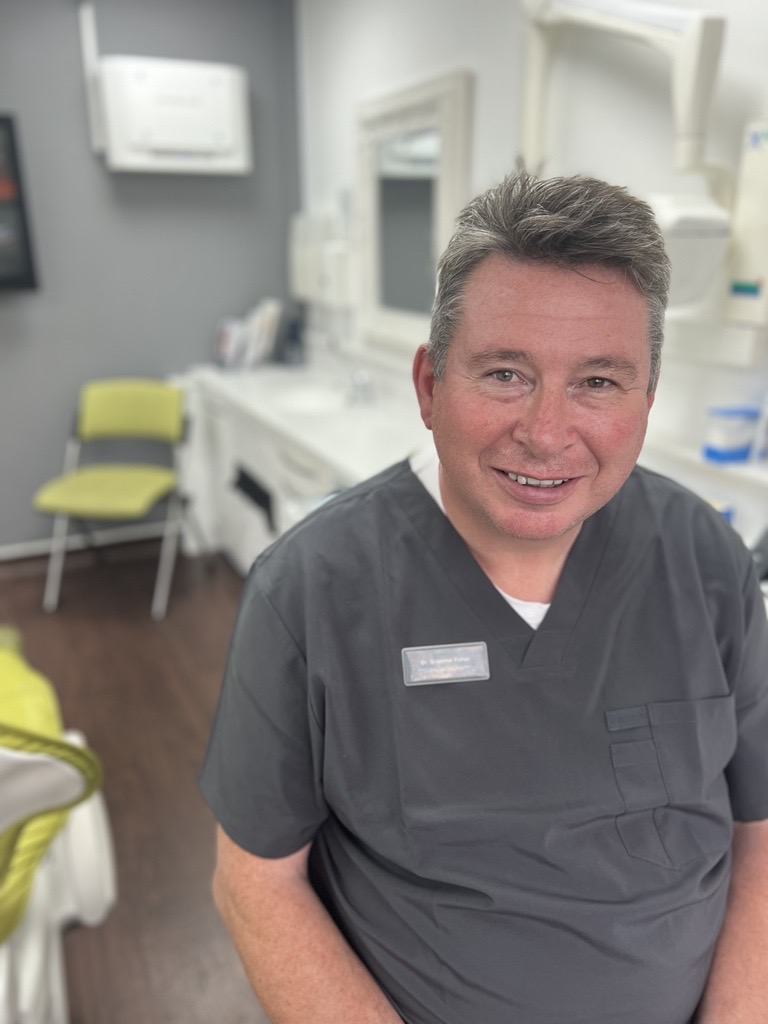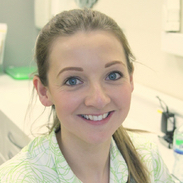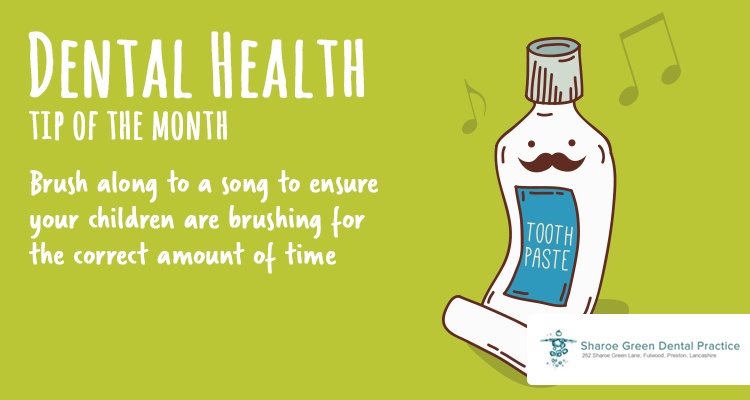News
How well do you know your teeth?

Other than visiting the dentist for your routine appointment, like most people you probably take your teeth for granted most of the time. Of course, if you’ve ever had treatment such as root canal treatment, dental implants, fillings or teeth whitening, you’ll be much more familiar with the inner workings of your mouth. But how much do you really know about your teeth? Here are 5 questions to test your knowledge.
1. How many milk teeth does a child have?
If you’ve ever had to comfort a baby when it’s teething, you’ll be well aware of the presence of even a single little milk tooth. But how many of them do children actually have? The answer is twenty (now calculate how much Bonjela that equates to!). Although they begin to form before birth, most milk teeth don’t come through until about 6 – 12 months old. It can then take up to about three years of age for a full set to be fully established.
Whilst the milk teeth (properly known as deciduous teeth) then begin to fall out between about five to six years old, they play an essential role in the development of the jaw cavity, creating the space for the permanent teeth to grow into. Milk teeth also play an essential part in the development of the smile and speech.
2. How many teeth does an adult have?
If a child has twenty teeth, then surely it follows that an adult also has twenty, right? Wrong! An adult has a total of 32 teeth – 12 more than a baby! Most of these teeth will have formed by the age of about 12 -14, but the wisdom teeth – the last four to emerge – typically appear between 17 – 21 years.
3. What are the wisdom teeth and why are they often removed?
Wisdom teeth are the last set of molars to erupt. It is widely believed that the name wisdom teeth derives from the wisdom we should possess by the time they appear. Anthropologists believe that wisdom teeth were the evolutionary answer to our ancestor’s early diet of coarse, rough food – like leaves, roots, nuts and meats – which required more chewing power and resulted in excessive wear of the teeth. The modern diet with its softer foods, along with the introduction of technologies such as forks, spoons and knives, has made the need for wisdom teeth nonexistent. As a result, evolutionary biologists now classify wisdom teeth as vestigial organs, or body parts that have become functionless due to evolution.
As part of this evolution, the human jaw has also become smaller and this has led to the problem of impacted or blocked wisdom teeth that only partially emerge. This can lead to tooth pain, infections and abscesses. In such cases, it may be in the patient’s best interest to have them removed.
4. What are the different types of permanent teeth called?
There are four type of permanent teeth:
Incisors. The four front teeth on the top and bottom jaw that are used for cutting and chopping food.
Canine teeth. These are sharp, pointy teeth which help to tear food. There is one on each side of your incisors on your top and bottom jaw, making a total of four.
Premolars. Premolars (also called bicuspid teeth) are located next to the canine teeth and are bigger and wider than the incisors and canine teeth. There are four on your top jaw and four on the bottom, giving eight in total. They are used for crushing and grinding food.
Molars. The molars are your strongest teeth and together with your tongue help you swallow food, mashing it up until it’s ready to be swallowed safely. There are eight molars: four on top and four on the bottom.
5. What are teeth actually made of?
There are actually two parts to the tooth. The external covering of the visible part of the tooth, known as the crown, and the inner parts which actually make up most of the tooth.
The external surface of the tooth is made from enamel, a hard, shiny substance which protects the sensitive inner part of the tooth. Enamel is actually the hardest substance in the body.
Beneath the enamel is a sensitive substance known as dentine. This is softer than the enamel and serves to protect the inner part of the tooth which we call the pulp. The pulp is where each tooth’s blood supply and nerve endings are found, which play an essential part in keeping the tooth alive and healthy.
Finally there is a substance known as cementum which covers the root of the tooth, and the periodontal fibres which connect the tooth to the jaw.
At Sharoe Green Dental Practice in Preston, Lancashire, we offer a full family dental service to cover all of your needs. As well as being ideally located with excellent transport connections and free parking, we also offer Saturday opening hours for maximum convenience. To book an appointment or enquire about becoming a member, call us now on 01772 804030 or use our handy online contact form and we’ll get back to you as soon as we can.
Dental Health Tip of the Month – September
Gum Disease Symptoms
Have your say – English Martyrs’ Schools Review
5 Tooth Whitening Do’s and Dont’s

Whether you are simply self conscious about the colour of your teeth or inspired by your favourite celebrity, there is nothing wrong with dreaming about a whiter smile. It is natural for us, as humans, to want to look and feel the best we can and our teeth and smile have a huge impact on this. In recent years, teeth whitening has become increasingly popular and more accessible than ever. Unfortunately, there are some dangers to avoid. Here’s how to make sure you get the right treatment and stay safe.
1. Don’t DIY
A quick search on the internet will show that there is an endless number of products available under the label of home whitening kits. These are perfectly legal, but are they safe and effective? This is a much greyer area. Firstly, you are relying on the manufacturer correctly informing you about the ingredients. Unlike the kits use by dentists, home whitening kits can often fall outside of the clinical testing that a professional alternative would be subject to. Whilst the vast majority are perfectly safe, the levels of active ingredients are significantly lower than those a dentist would use, making them much less effective. Then there are hygiene considerations – you can be sure that any kit your dentist uses has been manufactured, stored and handled in accordance with strict medical requirements. Can you guarantee the same for a kit that you purchase online? Finally, a dentist will make a precision mould that is unique to your teeth, meaning that the process will be as effective as possible, and prevent excessive contact of the chemicals with your gums. DIY whitening may seem like the cheaper option, but is likely to leave you dissatisfied in the long run.
2. Do discuss it with your dentist
If you have concerns about your smile, talk to your dentist – after all, it’s what we’re here for. Every patient is different, and there may be different treatments that suit different patients better than others. Only a qualified and experienced dentist can conduct a full medical examination of your teeth and gums to make sure that a particular teeth whitening treatment is safe and suitable for you. A dentist can also give you the aftercare advice you need to keep your new smile white and shiny for as long as possible.
3. Don’t do it elsewhere
An unfortunate side effect of the constantly increasing interest in teeth whitening is the growth in companies and individuals offering illegal teeth whitening. The law in the UK is very simple – with the exception of DIY kits used in the home, only a dentist can provide or administer teeth whitening. It is a dental treatment not a beauty treatment, and therefore it cannot be offered by other businesses such as beauty parlours and nail clinics. In recent years, many such business owners have been prosecuted for offering such treatments and have received substantial fines as well as hefty sentences. Only a registered dentist can guarantee that your teeth whitening is done safely and professionally.
4. Do choose a dentist you trust
Health risks aside, one of the other key reasons to choose a qualified dentist for your teeth whitening is trust and accountability. There is a strong risk that an illegal teeth whitening shop might simply vanish overnight. Should you experience any problems or concerns, you may find that they have simply jumped ship, leaving you with no come back. Not only does a dentist minimise any risks of problems by following strict procedures and doing the relevant medical research, your dental practice is unlikely to vanish. Of course, dentists do change practice from time to time, but provided they are registered with the General Dental Council as required by law, you will always be able to locate them. Choosing a dentist that you trust is the obvious choice.
5. Don’t pay the earth
Let’s be honest, like most things in life, dental treatment comes at a cost. Procedures that are considered cosmetic – whitening included – are typically associated with high price tags. Despite this, getting a shiny white smile doesn’t need to break the bank. At Sharoe Green Dental Practice of Preston, we offer some fantastic deals on teeth whitening with an attractive 20% discount for members.
To find out more about teeth whitening with Sharoe Green Dental Practice, give our team a call now on Preston 01772 804430 or use our online contact form for a swift response.
Dental Health Tip of the Month – August
Have your say – Mr and Mrs K Patient Review
5 Reasons You Should Have A Regular Dental Check Up

Admit it or not, few people like going to the dentist. Here at Sharoe Green Dental Practice in Preston, we understand it’s not always easy to keep regular appointments. For some people, it’s hard to find the time around their professional commitments, whilst others can be put off by a genuine fear of visiting the dentist. Most adults should visit a dentist at least once every six months, and sometimes more. In this article, we look at five reasons you really ought to.
1. Dental visits allow your dentist to examine your teeth and gums
The condition of your teeth and gums is of vital importance to your oral health, as well as your sense of well being. Not only can problems be uncomfortable or painful, they can also harm your confidence, as well as taking the pleasure out of eating and drinking.
A thorough check up will allow a dentist to identify any issues that are a cause for concern before they become a problem, allowing preventative treatment to be carried out to minimise the likelihood of problems developing.
2. Dental Checkups Allow You To Discuss Your Concerns
A dental check up provides you with an opportunity to talk to your dentist about any concerns you have, no matter how trivial you may think they are. Here at Sharoe Green Dental Practice in Preston, our experienced dentists pride themselves in being approachable and friendly, as well as being good listeners. After all, we believe this is what makes the difference between a good dentist and a great dentist.
Whatever your concerns, you can feel confident to discuss them with our team, who will be happy to investigate and advise you as necessary.
3. Dental Checkups Give You The Chance to Discuss Other Issues
Several lifestyle factors can affect your teeth and gums, in particular diet, smoking and drinking. A dental checkup allows you to discuss aspects such as these with your dentist, who can provide advice on minimising the negative impact your particular lifestyle may have on your oral health and hygiene.
Tailored, personal advice from an experienced dentist will help you to take a proactive role in protecting your dental health, allowing to to feel more confident and enjoy your lifestyle to the fullest.
4. Every Patient is Unique
Every dental patient is unique. This means that every checkup is a personalised experience specific to your teeth and gums, conducted by an experienced dentist. At Sharoe Green Dental Practice, we believe that there is no such thing as a one-size-fits-all solution to healthy teeth and gums.
Only by conducting a thorough, personalised examination with access to the right equipment can a dentist properly advise you on any preventative treatments or dental surgery you may require to keep your mouth in tip top shape.
5. It’s More Than Just Teeth
Did you know that a dental check up is about more than just your teeth and gums? As well as all the traditional checks, dentists are also now trained to spot signs of mouth cancer.
Regular dental checkups increase the likelihood of any important symptoms being recognised early on, giving you the best possible chance for successful treatment.
At Sharoe Green Dental Practice, we pride ourselves in offering the very best in dental care for all the family. As well as routine checkups and preventative treatment, we offer a range of cosmetic treatments to suit every situation. Conveniently located on Sharoe Green Lane opposite the Royal Preston Hospital, we have excellent parking facilities on Booths car park, which is free of charge for up to two hours for our patients visiting the practice. To book an appointment now call us on 01772 804430 or feel free to use our online contact form and we will get back to you as soon as we can.
Dental Health Tip of the Month – July
Have your say – Chris’ Patient Review
Why Choose Us?
- Invisalign Platinum Elite II Provider
- Membership benefits
- Family Dentist
- Convenient location
Principal Dentist
Dr. G. Fisher BDS PGDIP (Restorative) MJDF

Associate Dentist
Dr. L. Dobson BDS
















